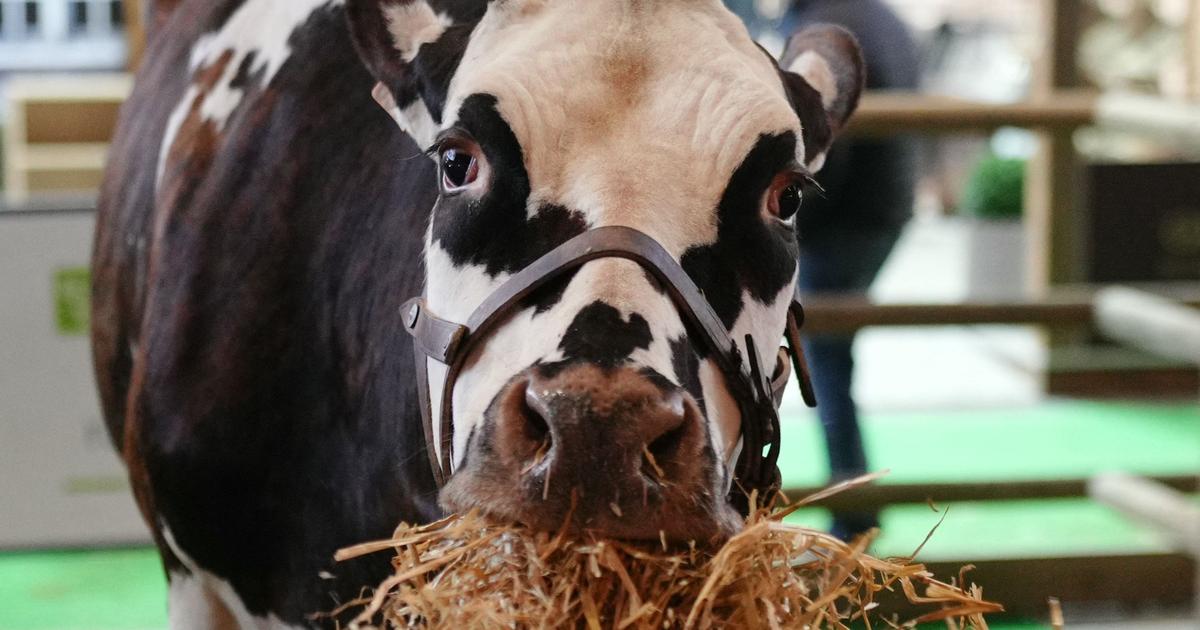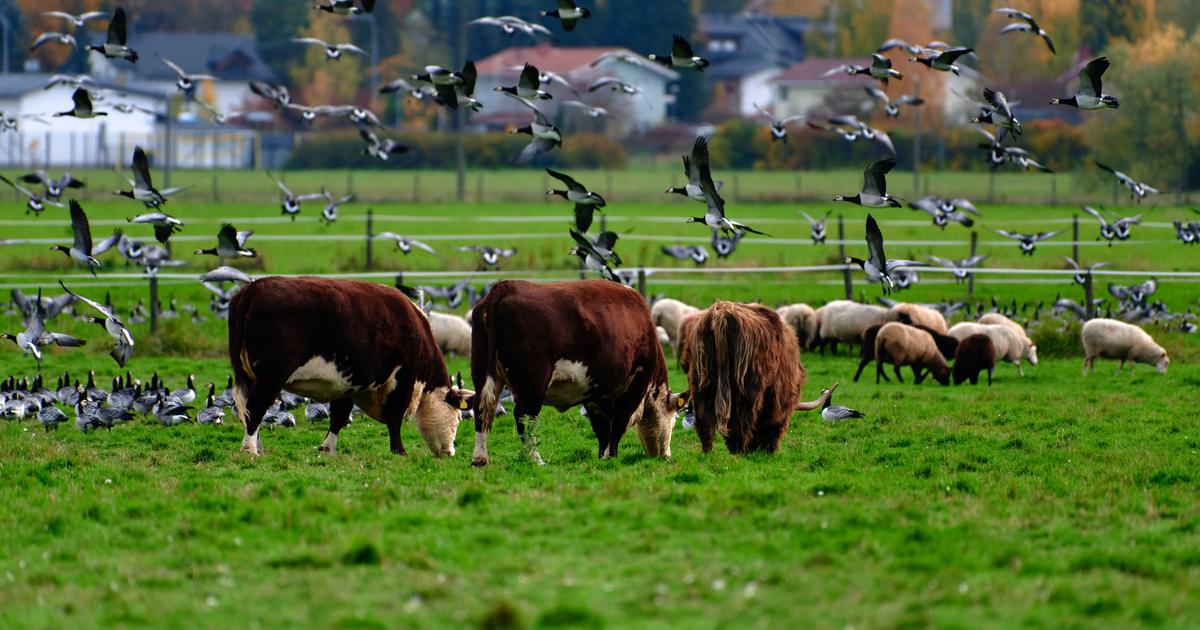Enlarge image
A cow of the Simmental breed (symbol image)
Photo:
Fabian Sommer / dpa
A cow suffering from mad cow disease has been discovered on a Dutch farm.
The Ministry of Agriculture informed the Parliament in The Hague.
When the carcass was checked, the disease BSE (bovine spongiform encephalopathy) was found.
However, the meat did not get into the food chain, the ministry said.
Therefore, there is no risk to the health of the population.
Eating meat contaminated with BSE can cause the deadly Creutzfeldt-Jakob brain disease in humans.
Operation isolated
The ministry did not say where the affected farm is located.
The company was isolated by the authorities, neither manure nor meat or animals may be removed.
The control authorities therefore want to track down calves of the infected animal that are to be killed.
This also applies to cattle that have been given the same feed.
According to the ministry, the BSE variant that has now been discovered is the atypical variant of mad cow disease.
This can appear spontaneously in old animals, for example, as the ministry announced.
The last time there was such a case in the Netherlands was in 2011.
The so-called classic variant was first discovered in Great Britain in 1986 and was mainly caused by animal protein in animal feed.
Since 1997, 88 cases of classical BSE have been registered in the Netherlands.
atb/AFP/dpa















